“Ten Years in a Cage: The Story of Misha and Dasha — and the Fight to Free Armenia’s Bears”.1314
Some animal rescue stories don’t just warm our hearts — they shake our conscience. They remind us that freedom is not a privilege granted by kindness, but a right owed to all living beings. The story of
For ten long years, these two majestic creatures lived inside a rusting metal cage on the banks of a river in
Their days blended into each other — pacing, climbing the bars, and staring across the river at the diners of a nearby restaurant. The laughter, the music, the smell of food — all reminders of a world they could see but never touch. Sometimes, tourists tossed scraps their way. That’s how they survived.
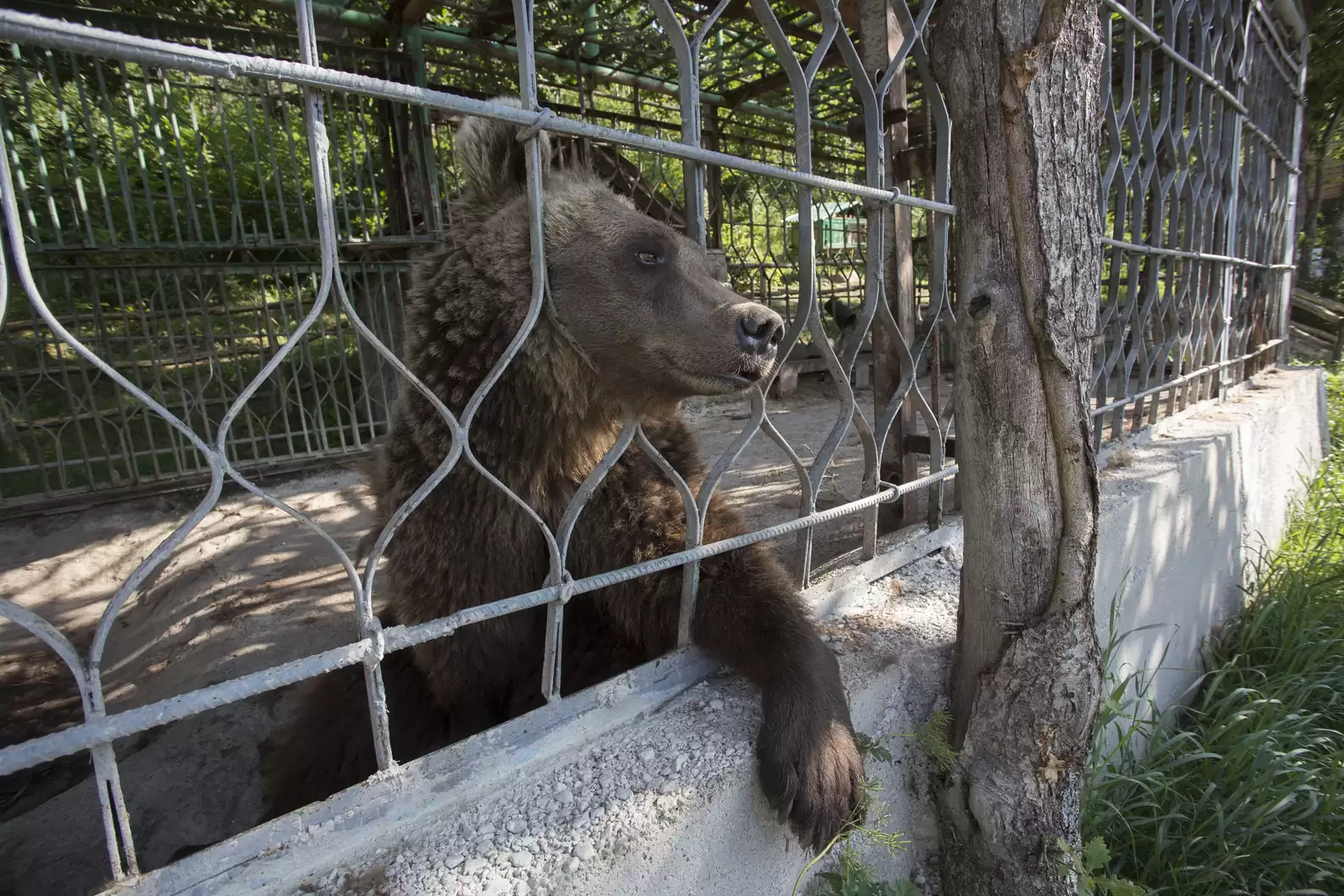
For a decade, nothing changed. Not the cage, not the monotony, not the hopelessness. “They spent years deprived of their freedom and their dignity,” said Lis Key, communications manager for
The bears came close to death more than once. When the river flooded, the water rose around them, nearly drowning them inside their own prison. Rescuers later found rust stains halfway up the cage — silent witnesses to how close they came to tragedy.
To passing tourists, they were background scenery — two bored animals behind bars. But to those who finally looked closer, they were survivors, enduring cruelty with a patience that only the innocent can possess.
Sadly, Misha and Dasha’s suffering was not unique. Animal welfare groups estimate that nearly 80 bears in Armenia still live in tiny cages — outside restaurants, factories, and roadside attractions. They are used as living decorations, their lives reduced to props for photos and entertainment. “Some of these bears have been in captivity for years,” said
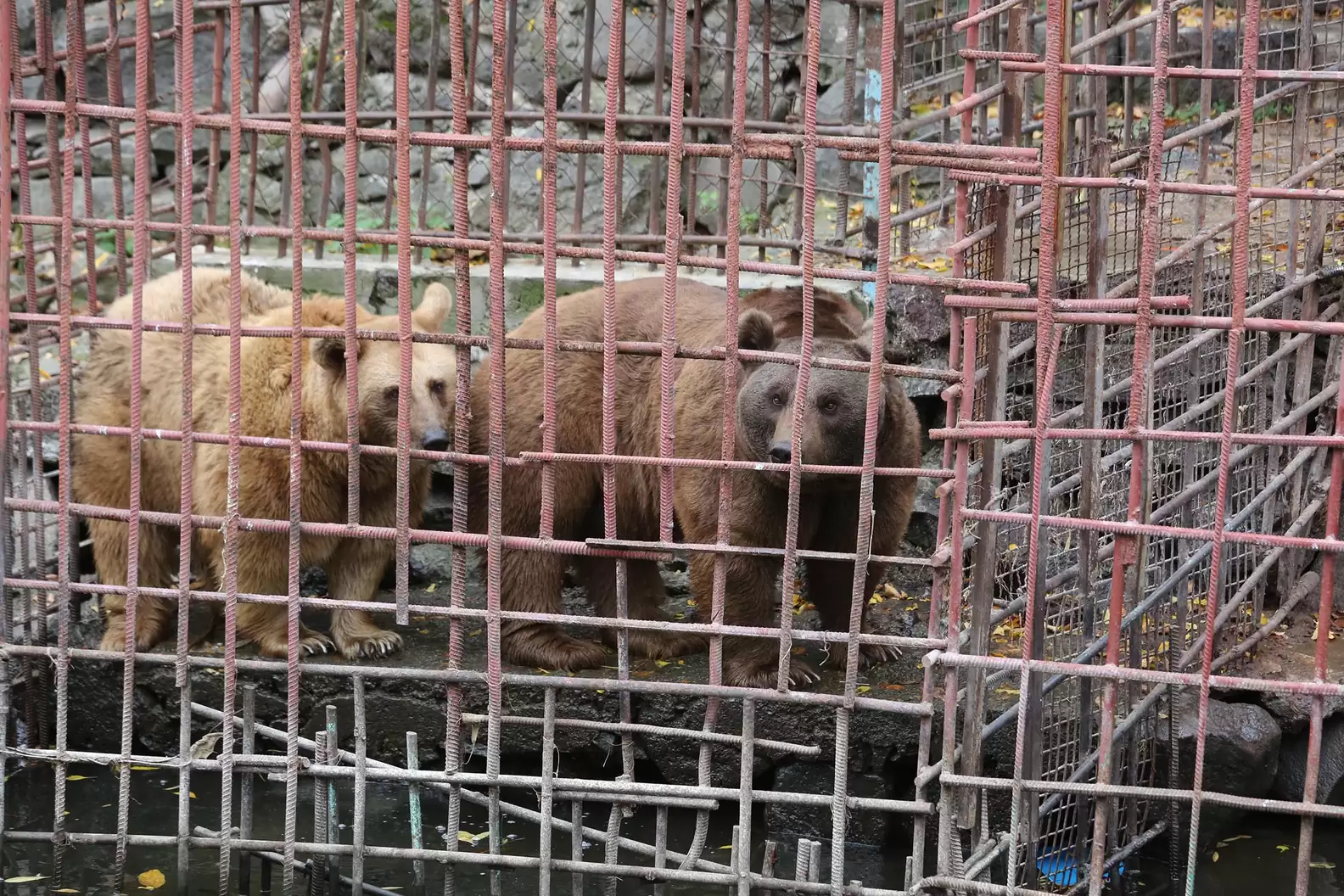
The practice stems from poverty and outdated traditions — but thanks to groups like
The breakthrough came when the restaurant owners finally agreed to surrender Misha and Dasha. It wasn’t simple. Their cage had been welded shut. The only way to free them was to cut through steel.
As the rescuers worked, sparks flew from the metal saws. The grinding noise terrified the bears — after ten years of monotony, the chaos must have felt unbearable. To keep them calm and safe, rescuers used tranquilizers. “They were extremely stressed at the noise and disturbance,” Lis Key explained. “But this was their moment — the beginning of freedom.”
Bit by bit, the cage gave way. The rescuers carefully lifted the tranquilized bears onto a truck bound for a sanctuary in the Armenian mountains, far from the noise of traffic and the eyes of tourists. It was the first time in ten years that Misha and Dasha saw the world without bars between them and the horizon.
When they arrived at the sanctuary, something beautiful happened. The two bears stood together, lifted their heads, and sniffed the mountain air — free air. For the first time, they could stretch, walk, and feel grass beneath their paws. They could dig, climb, and swim without fear of rising floodwaters.
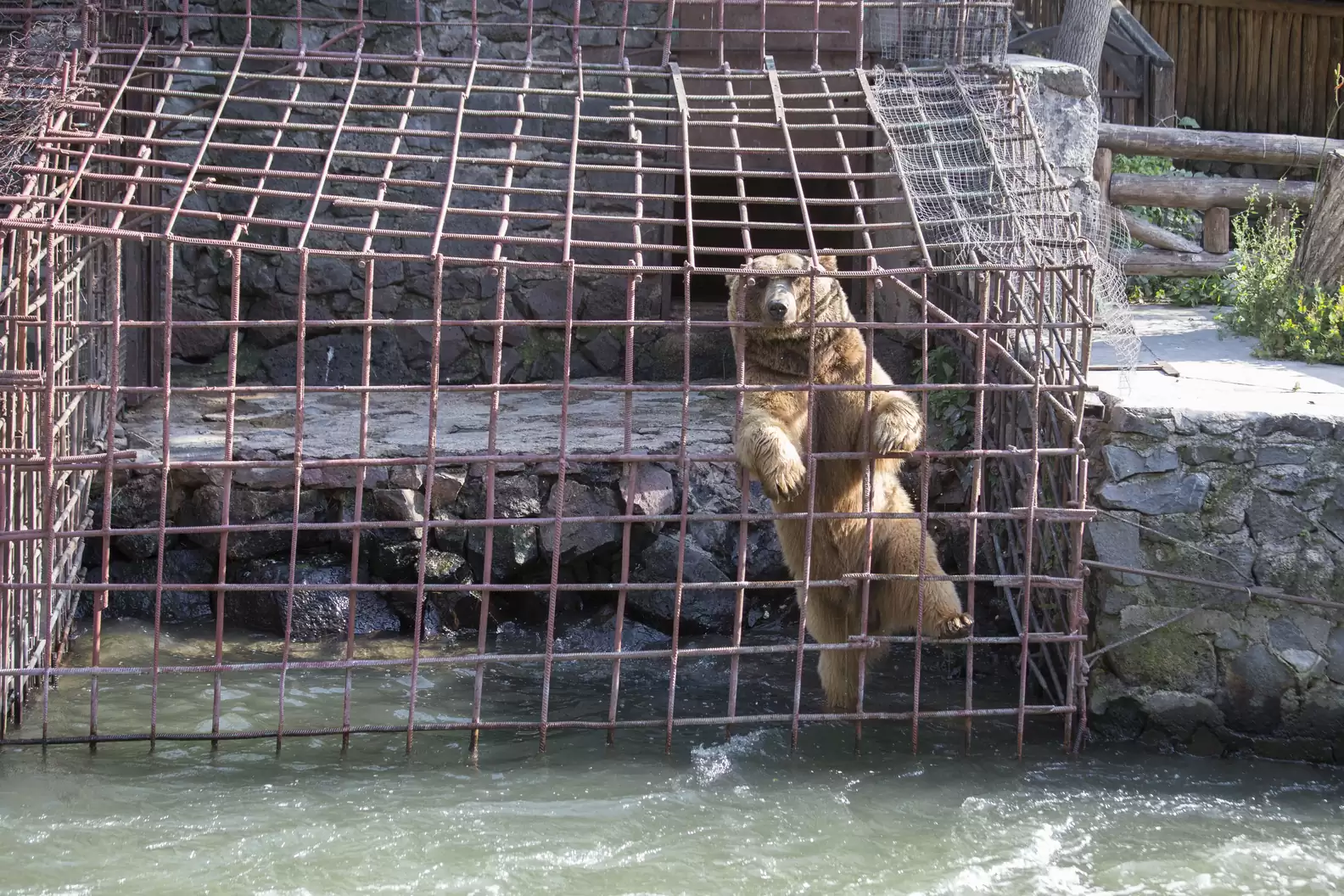
“They will be treated with compassion and respect,” Key said. “They’ll finally be able to behave like bears — not as objects for people to gawp at.”
Actor Neil Morrissey
But this rescue was not the end — it was just the beginning. Misha and Dasha’s freedom is part of
Every donation, every volunteer, every signature adds another link to the chain of compassion that is slowly replacing cruelty with care. Each success story — like Misha and Dasha’s — fuels awareness and hope, showing that real change is possible when humanity chooses empathy over exploitation.
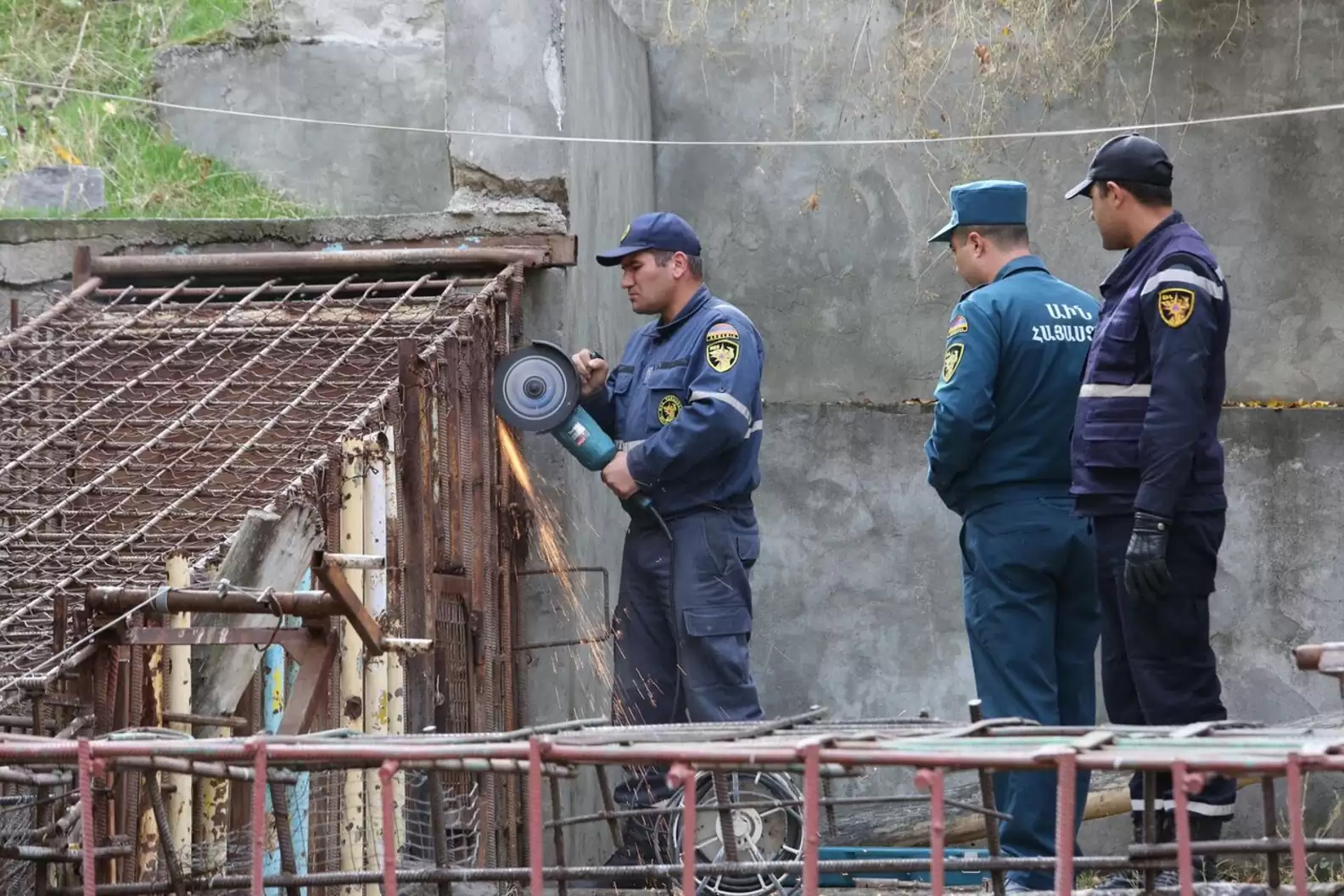
Their rescue has sparked something even larger — a national awakening. The Armenian government is now collaborating more closely with animal welfare organizations to end illegal animal displays and improve wildlife protection laws. For many citizens, Misha and Dasha have become symbols of transformation — proof that kindness can rewrite even the cruelest stories.
Today, they roam freely in their sanctuary. They play in the water, forage in the grass, and nap under the open sky. The sound of metal bars has been replaced by birdsong. The walls that once confined them are gone — replaced by wide, endless space.
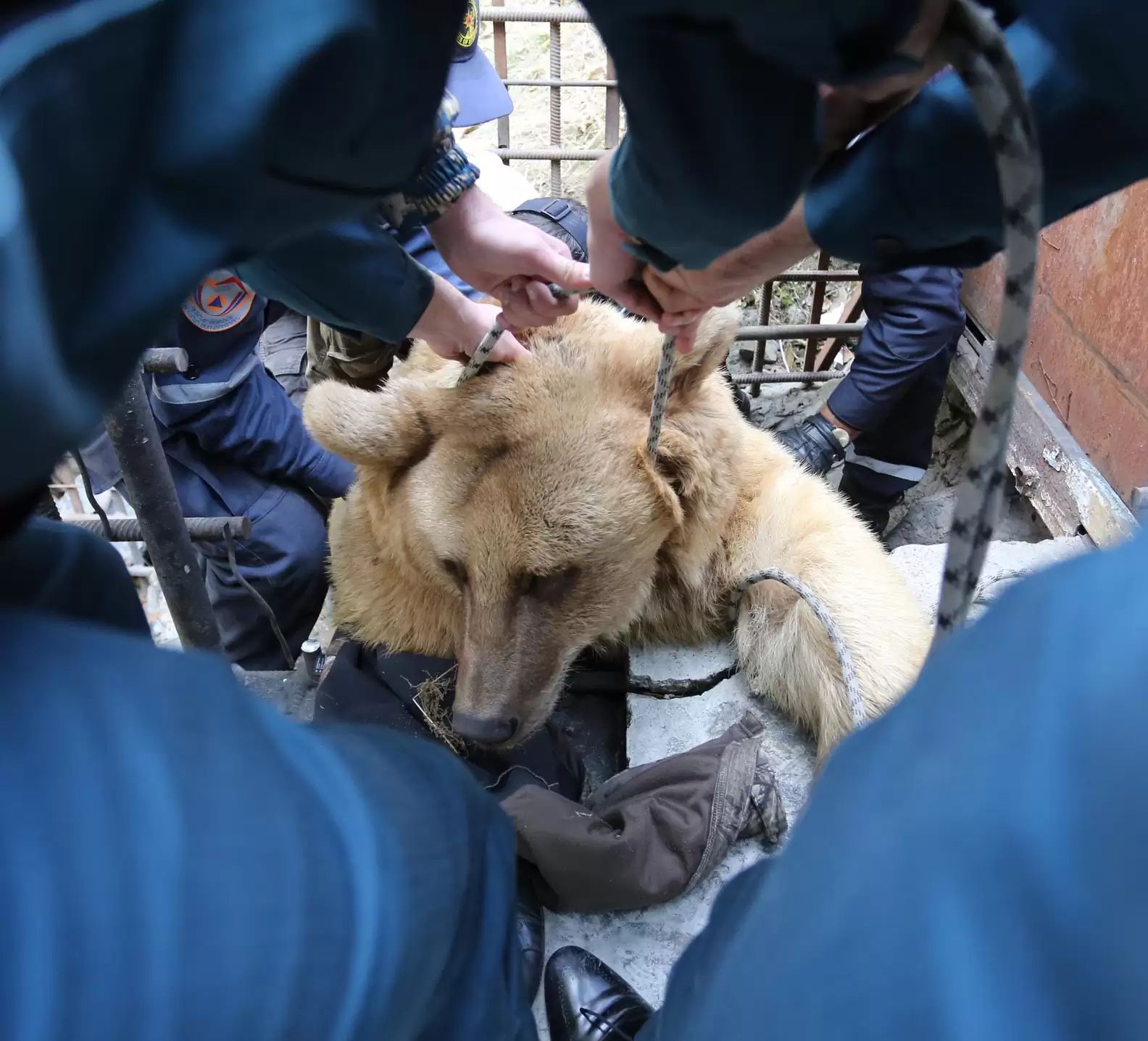
Ten years of suffering cannot be erased. But now, those ten years have given birth to something powerful: a movement that refuses to let silence win again.
As the sun sets over the mountains where Misha and Dasha now live, their pawprints trace more than just paths in the dirt — they trace a promise. A promise that no animal should ever live behind bars again.
Because sometimes, saving two lives means changing an entire country.
Because some rescues don’t just set animals free — they set humanity free, too. 🐻💛
A Rescue in the Frozen Lake: When Humanity Reached Out Its Hand.1287

The wind howled across the vast, frozen lake — the kind that bites through skin and shakes the trees to their roots. Amid the icy waves, two tiny brown bear cubs struggled desperately to stay afloat. Their small bodies, soaked and shivering, bobbed helplessly against the current.
Their mother had swum far ahead. She turned again and again, letting out desperate cries — but the distance was too great, and the cold too fierce. The cubs paddled harder, their movements growing weaker with every passing second. It was a scene both heartbreaking and raw — nature’s beauty intertwined with its mercilessness.
Then, from across the water, came the sound of an engine. A small fishing boat, manned by a group of men out for the day, was moving closer. One of them squinted at the struggling shapes in the distance. “Bears!” he shouted. At first, they hesitated — the lake was treacherous, the waves rising, and wild animals can be unpredictable. But hesitation gave way to instinct — the instinct to save.

Without a second thought, the fishermen steered toward the cubs. They knew the risks: one wrong move, and they too could end up in the icy water. Yet compassion, stronger than fear, guided their hands.
As the boat drew near, the fishermen saw the cubs’ faces — wide eyes filled with terror and exhaustion. They reached out with a long fishing net, trying to scoop the first cub to safety. The little bear clawed at the net with trembling paws, too weak to climb, too scared to understand. One of the men leaned dangerously over the edge, murmuring softly, “Don’t be afraid, little one… we’ll save you.”
It took all their strength and patience, but finally, with a heave and a prayer, they lifted the first cub into the boat. The tiny creature collapsed on the wooden floor, gasping and whimpering, its wet fur clinging to its frail body. Then came the second cub — even smaller, even weaker. For a moment, it disappeared beneath the waves, and a cry broke from one of the rescuers. But then, miraculously, it resurfaced. The fishermen worked together, hearts pounding, arms straining — and soon, the second cub was safe too.

The bears were shaking uncontrollably, eyes darting, unsure of what to make of their strange saviors. But as one fisherman gently touched a paw, something unspoken passed between them — trust. For a brief moment, fear gave way to understanding. The cubs pressed close to the men’s boots, seeking warmth and safety, as though their instincts knew these humans were there to help, not harm.
A short distance away, on a small island covered in moss and pine, the mother bear waited anxiously. She had been pacing along the shore, calling out for her babies. When the fishermen approached the island and released the cubs, the reunion was nothing short of miraculous.
The mother bear rushed forward, her low growl turning into a cry of relief. The cubs stumbled toward her, whimpering softly, and she enveloped them in her powerful embrace. For a few moments, the world seemed to stop. The fishermen stood silently, watching nature’s most sacred bond — the reunion of a mother and her children, against all odds.
One of the men wiped his eyes. “We just did what anyone should do,” he said quietly. But the truth was, not everyone would have. It takes courage to face danger for another creature’s sake — especially one that can never say “thank you.”
When the video of their rescue was later shared, it spread across the world like wildfire. Millions watched in awe as the little bears clung to the fishermen, as the boat rocked gently on the waves, as love triumphed over fear. Viewers called it one of the most touching moments ever captured — a reminder that compassion knows no language, no species, no boundaries.
In a time when headlines often tell stories of cruelty and loss, these fishermen reminded the world of something pure and unshakable: human kindness still exists.
The frozen lake has long since thawed, the bears now roam freely with their mother, growing stronger each day. But somewhere in that northern wilderness, where the water meets the trees, the memory remains — of a day when man and nature stood side by side, not as enemies, but as protectors and friends.
Because sometimes, the most extraordinary stories aren’t about heroes in uniforms or fame — they’re about ordinary people who choose to act when it matters most.
And on that cold, northern lake, courage wore a fisherman’s coat — and compassion saved two tiny lives. 💙





